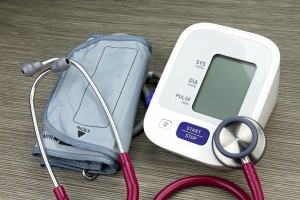Written by Greg Arnold, DC, CSCS. Of the 70 participating subjects with healthy blood pressures, those who supplemented with Nigella sativa oil for 8 weeks, had significantly reduced blood pressure compared to placebo.
 High blood pressure affects one in three American adults (73 million adults) and costs our healthcare system $46 billion each year 1. According to the Centers for Disease Control and Prevention, there were 360,000 American deaths in 2013 due in part to high blood pressure, equaling nearly 1,000 deaths each day 1.
High blood pressure affects one in three American adults (73 million adults) and costs our healthcare system $46 billion each year 1. According to the Centers for Disease Control and Prevention, there were 360,000 American deaths in 2013 due in part to high blood pressure, equaling nearly 1,000 deaths each day 1.
Increasing activity levels 2 as well as intake of omega-3 fatty acids 3, potassium 4 and hibiscus tea 5 may help maintain a healthy blood pressure. A 2013 study 6 suggests that N. sativa oil, whose plant seeds are popular in Asia, Middle East, and Africa as a spice, food preservative and medicine by the people in Asia 7, may also benefit blood pressure.
In the study, 70 healthy subjects (33 males, 37 females) between the ages of 39 and 55 received either 2.5 milliliters N. sativa oil or mineral oil twice daily after a meal for 8 weeks. Before and after the study, blood samples and blood pressure were taken. The sativa oil contained 825.51 milligrams of antioxidants called polyphenols.
After 8 weeks, the systolic and diastolic blood pressures in the N. sativa group decreased significantly compared with the placebo group (P = 0.002 and P = 0.04 respectively):
| Sativa Oil | Placebo | p-value | |
|---|---|---|---|
| Systolic blood pressure (mmHg) | 8.2% decrease (129.7 to 119.1) | 0.4% decrease (127.3 to 126.9) | 0.002 |
| Diastolic blood pressure (mmHg) | 12.5% decrease (77.0 to 67.4) | 1.8% decrease (75.2 to 73.9) | 0.04 |
The systolic and diastolic blood pressures in the N. sativa group decreased significantly as well, when compared with baseline (P = 0.000 and P = 0.000, No statistically significant benefits were seen in the blood work (p > 0.05).
When suggesting a mechanism for sativa oil’s blood pressure-lowering benefits, the researchers suggested a polyphenol in the oil, thymoquinone, that has been shown to lower blood pressure in rat studies 8. They also cited research suggesting that sativa oil may work in the brain to help lower blood pressure 9 but admitted that “other mechanisms also may be involved.”
Although the sample size of 79 subjects was small, the researchers concluded that “daily intake of N. sativa seed oil lowers systolic and diastolic blood pressures in healthy volunteers without adverse effects on liver and kidney functions”. They recommended “further clinical trials of N. sativa oil on mildly hypertensive patients with larger sample sizes and longer durations of treatment for its efficacy and safety assessment.”
Source: Fallah Huseini, H., et al. “Blood Pressure Lowering Effect of Nigella sativa L. Seed Oil in Healthy Volunteers: A Randomized, Double‐Blind, Placebo‐controlled Clinical Trial.” Phytotherapy Research 27.12 (2013): 1849-1853.
© 2013 John Wiley & Sons, Ltd.
Posted May 1, 2017.
Greg Arnold is a Chiropractic Physician practicing in Hauppauge, NY. You can contact Dr. Arnold directly by emailing him at PitchingDoc@msn.com or visiting his web site at www.PitchingDoc.com
Reference:
- CDC. High Blood Pressure Facts. 2016; Overview of high blood pressure. Available at: https://www.cdc.gov/bloodpressure/facts.htm. Accessed April 26, 2017, 2017.
- Huai P, Xun H, Reilly KH, Wang Y, Ma W, Xi B. Physical Activity and Risk of Hypertension. Hypertension. 2013:HYPERTENSIONAHA. 113.01965.
- Wang S, Ma A, Song S, Quan Q, Zhao X, Zheng X. Fish oil supplementation improves large arterial elasticity in overweight hypertensive patients. European Journal of Clinical Nutrition. 2008;62(12):1426-1431.
- Binia A, Jaeger J, Hu Y, Singh A, Zimmermann D. Daily potassium intake and sodium-to-potassium ratio in the reduction of blood pressure: a meta-analysis of randomized controlled trials. Journal of hypertension. 2015;33(8):1509-1520.
- McKay DL, Chen CO, Saltzman E, Blumberg JB. Hibiscus sabdariffa L. tea (tisane) lowers blood pressure in prehypertensive and mildly hypertensive adults. The Journal of nutrition. 2010;140(2):298-303.
- Fallah Huseini H, Amini M, Mohtashami R, et al. Blood Pressure Lowering Effect of Nigella sativa L. Seed Oil in Healthy Volunteers: A Randomized, Double‐Blind, Placebo‐controlled Clinical Trial. Phytotherapy Research. 2013;27(12):1849-1853.
- Kunnumakkara AB, Koca C, Dey S, et al. Traditional uses of spices: an overview. Molecular targets and therapeutic uses of spices World Scientific, New Jersey. 2009:1-24.
- Khattab MM, Nagi MN. Thymoquinone supplementation attenuates hypertension and renal damage in nitric oxide deficient hypertensive rats. Phytotherapy Research. 2007;21(5):410-414.
- El Tahir KE, Ashour MM, Al-Harbi MM. The cardiovascular actions of the volatile oil of the black seed (Nigella sativa) in rats: elucidation of the mechanism of action. General Pharmacology: The Vascular System. 1993;24(5):1123-1131.
